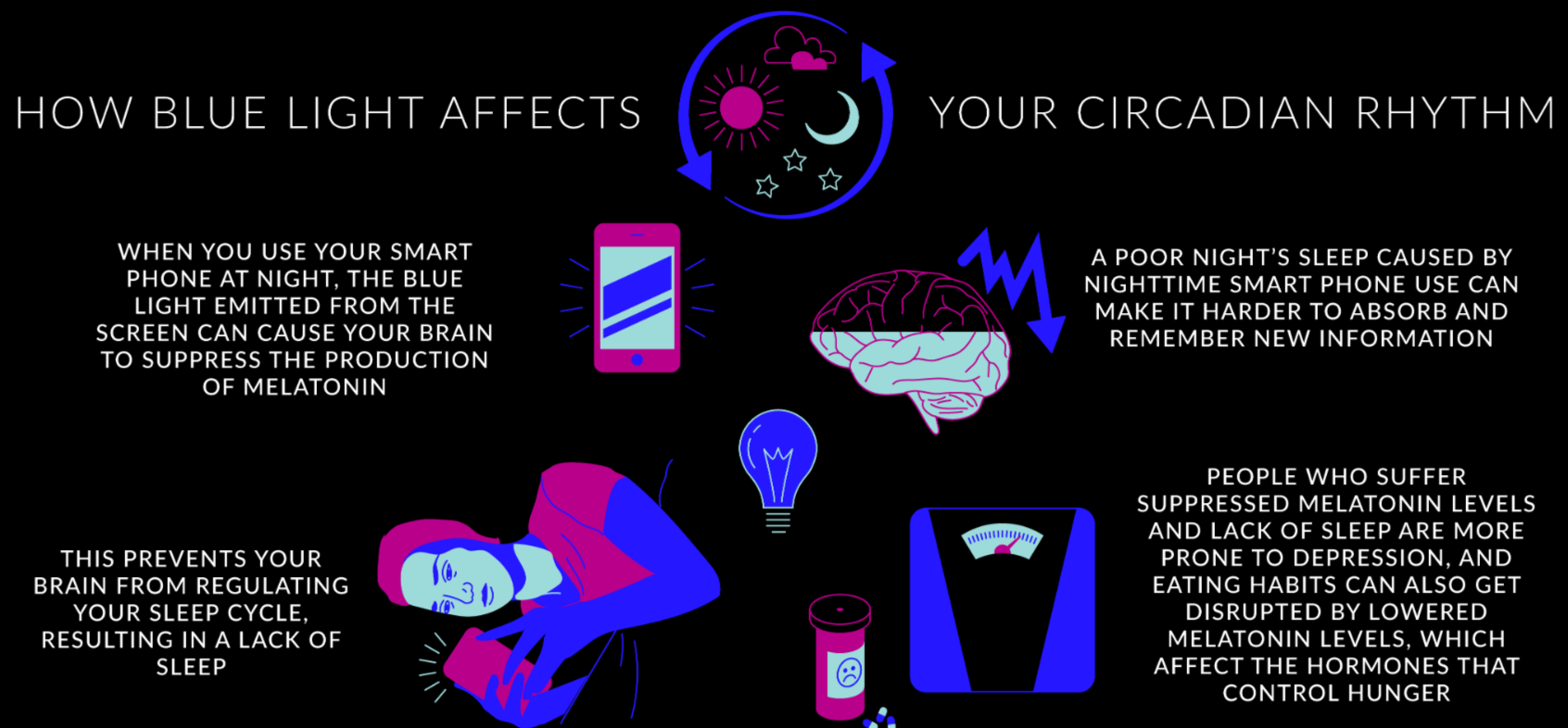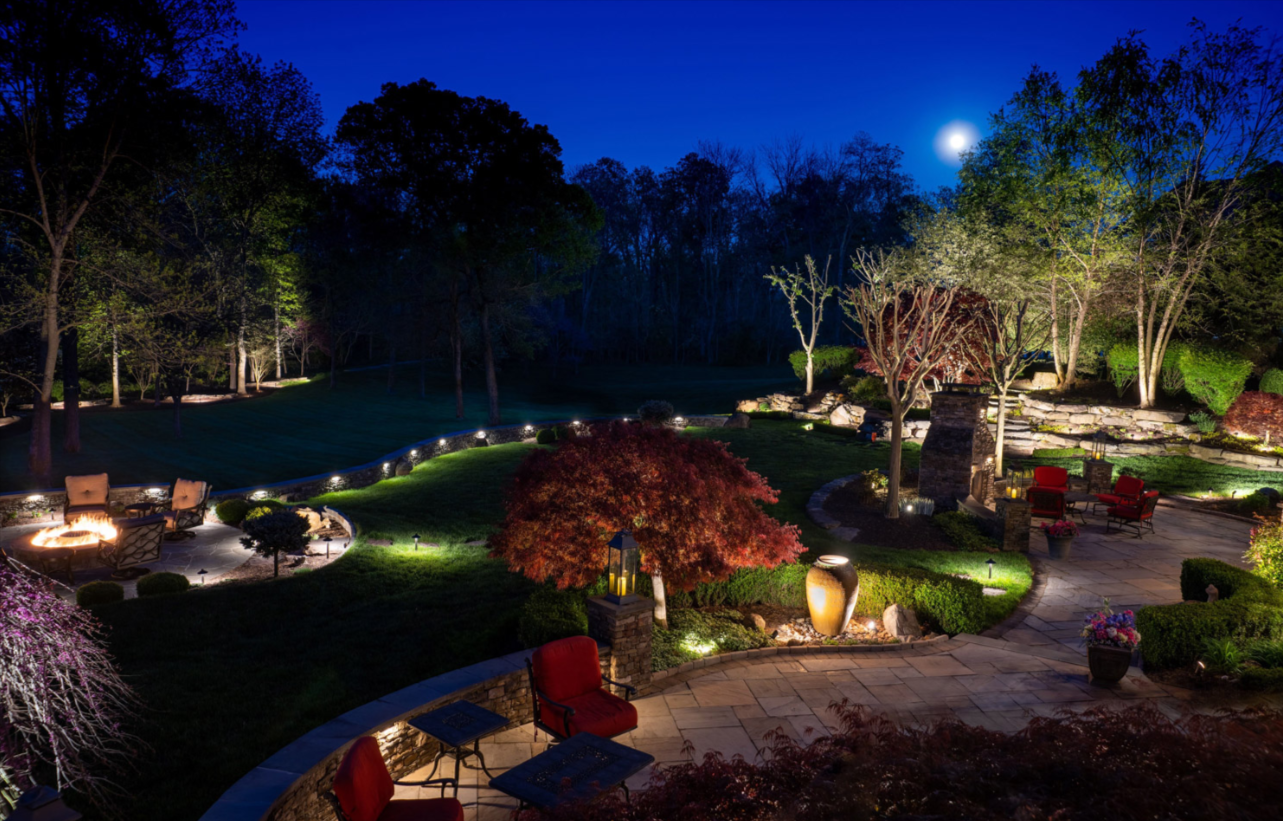Understanding the Effects of Blue Light on Sleep Patterns

Screens are everywhere these days, we live surrounded by computers, tablets, mobile phones and TVs. We all know about the advantages of technology, but there are some unspoken pros and cons of it too. Among the notable issues really is blue light, and that can suppress your sleep and destroy your overall health.
So, what is blue light, and why does it impact sleep? In this guide you will learn about the science of blue light, how it disrupts your body’s natural cycles, and the most efficient steps you can take to save your sleep while enjoying your devices.
🔵 What Is Blue Light?
Blue light is a specific kind of visible light in the spectrum, located at the short-wavelength end high-energy of the visible light spectrum. Naturally found in sunlight, it is essential for regulating the circadian rhythm of our body (the internal clock).
Natural blue light in daytime moderation helps. It minimizes drowsiness, tempers cognitive function, and enhances mood. But this became an issue when we started getting artificial blue light exposure from electronic screens and led lighting, particularly in the evening.
🕰️ What Blue Light Does to Your Sleep Cycle?
The circadian rhythm is your body clock that regulates your sleep and wake patterns. A big player in this system is a hormone called melatonin that regulates our sleep. You would normally expect the melatonin levels increase at night as a cue indicating to your body that it is time to relax and go to sleep.
But when people see blue light before sleeping, it can interfere with that natural process. Here’s how:
- Blue light suppresses melatonin: Blue light signals your brain that it is still daytime i.e. your brain reduces melatonin release.
- It hinders the ability to fall asleep: Decreased melatonin production makes falling asleep more difficult.
- Changes in sleep quality: Although you may reach to sleep, blue light exposure can decrease deep, restorative sleep time.
- Interferes with REM sleep: This crucial phase of sleep is critical for memory consolidation and also mood stability.
You are able to understand why when you are up late scrolling on your phone or watching the TV, the next day you wake up tired and groggy.
❗ What Are Signs You Splendidly Affect Sleep By Blue Light
Wondering whether blue light is messing with your sleep? Below are some of the common symptoms:
- Difficulty falling asleep
- Night waking frequently
- Extreme fatigue despite the full eight hours of sleep
- Less focus, concentration and at daytime
- Extreme of moods or heightened anger
If you are having these symptoms frequently, your before-bed screen snacking habits may be a contributor to it.
📱 Where Do We Get Blue Light From ( Everyday Sources )
Sun light is not the only source that emit blue light. Blue light is emitted by a number of modern devices, including:
- Smartphones
- Tablets and e-readers
- Computers and laptops
- LED and fluorescent lighting
- Flat-screen TVs
More and more people are using these devices in the evenings, thus exposure to artificial blue light has been a common disruptor of good sleep hygiene.
🔬 Studies on Blue Light and Sleep
Various research suggests blue light hampers sleep. Here are some key findings:
- Blue Light Melatonin Suppression — A 2014 study by researchers at Harvard found that blue light suppressed melatonin production for twice as long as green light and altered circadian rhythms by as much as three hours.
- Sleep Interruption: A study from the Journal of Clinical Endocrinology & Metabolism revealed that even low levels of blue light can lead to longer sleep latency and shorter sleep opportunities among participants that were exposed to blue light prior to bed.
- Impact on Teens: Research shows that teens, who are biologically prone to be night owls, are especially vulnerable to the effects of this blue light, due to more exposure from more time on phones, gaming, and streaming services.
This highlights the need to avoid blue light exposure before bed
🏆 Advantages of Decreasing Blue Light Exposure
By reducing your exposure to the blues, you will stand to gain:
- Better sleep quality and length
- Easier time falling asleep
- Improvement in mood and stability with moods
- Greater focus and alertness during the day
- Less chance of sleep-related conditions like obesity and heart disease
📝 How to Reduce the Negative Impact of Blue Light on Sleep
If you're worried about blue light interfering with their sleep, there are many straightforward ways to cut back — especially in the evening.
✅ 1. Limit Screen Time Before Bed
Decreasing the amount of screen exposure during the time before sleep is one of the essential methods to secure your sleep. Try not to use screens for the hour or two before falling asleep. Instead, engage in calming activities such as:
- Reading a physical book
- Meditating
- Listening to calming music
- Journaling
🕶️ 2. Wear blue light filtering spectacles
Blue light blocking glasses have lens that minimize certain wavelengths of blue light to keep them from reaching your eyes. Using these glasses at night can also help regulate melatonin levels and enhance sleep quality.
📱 3. Enable Night Mode In Devices
Blue light filters or nightly modes are built in to most modern devices. These features minimize the emission of blue light by changing the temperature of the screen, to warmer tones.
That said, here is how to enable it on popular devices:
- Settings → Display & Brightness → Night Shift (on iPhone/iPad)
- For Android devices → Go to Settings → Display → Night Light
- Through Windows PC — Settings → System → Display → Night Light
- Mac: System Preferences → Displays → Night Shift
💡 4. Optimize Your Lighting Conditions
In the evening, switch to warmer, dimmer lights to minimize blue light exposure from household lighting. Alternatively, you can even make use of smart bulbs that dynamically change color temperature according to the time of the day.
🛏️ 5. Focus on Building a Sleep-Inducing Routine
A regular nighttime routine is a great way to tell your body that it is time to settle down. Here are some tips:
- Sleep perhaps at the same time routine, even after the saturday and sunday
- Do not drink caffeine for at least 6 hours before going to bed.
- Make sure your bedroom is cool, dark, and quiet.
- Utilize breathing tips or light stretching.
🍽️ 6. Eat a Balanced Diet to Help With Sleep
And some nutrients can modulate sleep and offset the effects of blue-light exposure. These foods may even help you sleep better at night, so why not throw some of them into your evening menu?
- Foods high in magnesium: Spinach, almonds, banana
- Sources of tryptophan: Turkey, dairy products, oats
- Foods that contain melatonin: Tart cherries, grapes, walnuts
⏲️ 7. During the day, make sure to let natural sunlight in.
Being in the natural sunlight during daytime helps to reinforce your body’s circadian rhythm, so it reacts properly when it is time to go to sleep. Get an hour of sunlight every day – at least 20–30 minutes if you can, preferably in the morning.
Proposed Next Steps for Blue Light Research 📊
While the relationship between blue light exposure and sleep is well-understood, researchers are continuing to explore the effects of blue light on other facets of health, such as in the areas of eye strain, mood disorders, and cognitive function. With the development of technology, blue light blocking tools and equipment will be more popular.
Conclusion: Keep Your Sleep Safe from Blue Light
Blue light is great for keeping you awake and concentrated during the day, but can disrupt your sleep if you get exposed to it too much—as it often happens in the evenings.
Knowing how blue light impacts your body and finding ways to limit exposure can help protect your sleep, enhance overall health, and just as often awaken fresh and full of energy.
Little habits – like enabling night mode on devices, blue-light glasses, and cutting off screen time before bed – have huge impacts on your quality of sleep and how well you function daily.
Get to bed, and your body and mind will thank you for it! 🌙💤
